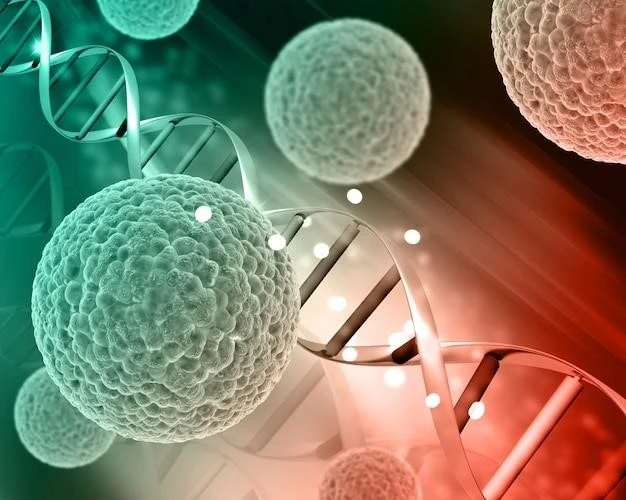Disease ⎯ Glycogenosis Type VII
Glycogenosis Type VII‚ also known as Tarui disease‚ is a rare hereditary metabolic disorder caused by a genetic mutation affecting the enzyme phosphofructokinase. This condition leads to muscle weakness and liver involvement due to glycogen storage disease. The article will explore the symptoms‚ diagnosis‚ treatment‚ prognosis‚ management‚ living with the disorder‚ research‚ and future developments.
Overview of Glycogenosis Type VII
Glycogenosis Type VII‚ also known as Tarui disease‚ is a rare hereditary metabolic disorder resulting from a genetic mutation affecting the enzyme phosphofructokinase‚ which plays a crucial role in glucose metabolism. This disorder is categorized as a glycogen storage disease due to the abnormal accumulation of glycogen in tissues.
Individuals with Glycogenosis Type VII typically experience symptoms like muscle weakness‚ fatigue‚ exercise intolerance‚ and cramping during physical activity. Liver involvement is also common‚ leading to hepatomegaly and potential liver dysfunction.
Diagnosis of Glycogenosis Type VII involves genetic testing to identify mutations in the PFKM gene. Additional tests may include muscle biopsies and blood tests to assess enzyme levels. Early detection is essential for proper management and treatment.
Due to its rarity‚ Glycogenosis Type VII can present challenges in diagnosis and treatment. Research into better diagnostic methods and potential therapies is ongoing to improve outcomes for individuals affected by this metabolic disorder.
Understanding the Genetic Basis
Glycogenosis Type VII is caused by mutations in the gene encoding the enzyme phosphofructokinase (PFKM)‚ an essential enzyme involved in the breakdown of glucose to produce energy. These genetic mutations lead to a deficiency or dysfunction of phosphofructokinase‚ disrupting normal glucose metabolism.
The PFKM gene mutations inherited in an autosomal recessive pattern‚ meaning that an individual must inherit two copies of the mutated gene (one from each parent) to develop Glycogenosis Type VII. Carriers of a single mutated gene are typically asymptomatic.
There are various types of mutations that can occur in the PFKM gene‚ including missense mutations‚ frame-shift mutations‚ and splicing mutations. These mutations can affect the structure and function of the phosphofructokinase enzyme‚ leading to impaired energy production in affected tissues.
Understanding the genetic basis of Glycogenosis Type VII is crucial for accurate diagnosis through genetic testing. Identifying the specific mutations in the PFKM gene can help differentiate Glycogenosis Type VII from other glycogen storage diseases and guide appropriate management and treatment strategies.
Symptoms and Diagnosis
Common symptoms of Glycogenosis Type VII include muscle weakness‚ exercise intolerance‚ fatigue‚ cramping‚ and recurrent myoglobinuria (the presence of myoglobin in urine). These symptoms often manifest during physical exertion due to the inability to efficiently break down glycogen for energy.
Diagnosing Glycogenosis Type VII involves a combination of clinical evaluation‚ genetic testing‚ and laboratory investigations. Physical examination may reveal muscle weakness‚ enlarged liver (hepatomegaly)‚ and other signs suggestive of a metabolic disorder.
Genetic testing to identify mutations in the PFKM gene is a key component of the diagnostic process. Muscle biopsies may also be performed to assess enzyme levels and glycogen accumulation in muscle tissue. Blood tests measuring creatine kinase and lactate levels can help evaluate muscle damage and metabolic function.
Early diagnosis of Glycogenosis Type VII is essential for initiating appropriate management strategies and interventions to improve the quality of life for individuals with this condition. Treatment may involve dietary modifications‚ physical therapy‚ and in some cases‚ enzyme replacement therapy to address the underlying enzyme deficiency.
Muscle Weakness and Liver Involvement
Glycogenosis Type VII commonly presents with muscle weakness due to the impaired breakdown of glycogen for energy production. Individuals with this condition may experience muscle fatigue‚ cramping‚ and exercise intolerance‚ making physical activity challenging.
Liver involvement is also a characteristic feature of Glycogenosis Type VII. The abnormal accumulation of glycogen in the liver can lead to hepatomegaly (enlarged liver) and liver dysfunction. Some individuals may experience symptoms such as abdominal discomfort‚ abnormal liver function tests‚ and potential complications related to liver involvement.
The combined impact of muscle weakness and liver involvement in Glycogenosis Type VII can significantly affect an individual’s daily activities and quality of life. Management strategies aim to address these symptoms‚ improve muscle function‚ and support liver health through a multidisciplinary approach involving healthcare providers specializing in metabolic disorders.
Regular monitoring of muscle strength‚ liver function‚ and overall metabolic health is essential for individuals with Glycogenosis Type VII to optimize their management and ensure early intervention in case of disease progression or complications related to muscle weakness and liver dysfunction.
Treatment Options
The management of Glycogenosis Type VII focuses on addressing symptoms‚ improving quality of life‚ and preventing complications associated with muscle weakness and liver involvement. Treatment options for individuals with Glycogenosis Type VII may include⁚
- Dietary Modifications⁚ A controlled diet rich in complex carbohydrates and protein may help regulate glucose levels and provide sustained energy to muscles.
- Physical Therapy⁚ Exercise programs tailored to the individual’s needs can help improve muscle strength‚ flexibility‚ and endurance.
- Medications⁚ Some individuals may benefit from medications that target specific symptoms such as muscle pain‚ cramping‚ or liver dysfunction.
- Enzyme Replacement Therapy⁚ In certain cases‚ enzyme replacement therapy may be considered to supplement the deficient phosphofructokinase enzyme and enhance energy production.
- Liver Support⁚ Monitoring liver function and providing liver-supportive therapies may be necessary to manage hepatomegaly and prevent liver-related complications.
Individualized treatment plans tailored to each person’s specific symptoms‚ disease progression‚ and overall health status are essential for effectively managing Glycogenosis Type VII. Collaborating with a multidisciplinary team of healthcare professionals‚ including metabolic specialists‚ dietitians‚ physical therapists‚ and genetic counselors‚ can help optimize treatment outcomes and enhance the overall well-being of individuals living with this rare metabolic disorder.
Prognosis and Management
The prognosis of individuals with Glycogenosis Type VII can vary depending on the severity of symptoms‚ early detection‚ and the effectiveness of management strategies. With proper diagnosis and comprehensive management‚ many individuals can lead fulfilling lives despite the challenges posed by this metabolic disorder.
Effective management of Glycogenosis Type VII involves a holistic approach that addresses muscle weakness‚ liver involvement‚ and other associated symptoms. Regular monitoring of muscle function‚ liver health‚ and metabolic parameters is crucial for tracking disease progression and adjusting treatment plans accordingly.
Individuals with Glycogenosis Type VII are encouraged to work closely with a healthcare team specializing in metabolic disorders to develop personalized management plans that suit their unique needs and goals. Lifestyle modifications‚ including dietary adjustments‚ regular exercise‚ and adherence to prescribed medications‚ can significantly impact the prognosis and quality of life for individuals with this rare condition.
Early diagnosis‚ timely intervention‚ and ongoing support from healthcare providers and caregivers are essential components of successful management of Glycogenosis Type VII. By proactively managing symptoms‚ optimizing energy levels‚ and addressing potential complications‚ individuals with Glycogenosis Type VII can achieve better long-term outcomes and maintain overall well-being.
Living with a Rare Metabolic Disorder
Living with Glycogenosis Type VII‚ a rare metabolic disorder‚ can present unique challenges that require ongoing management and support. Individuals affected by this condition may face physical limitations‚ dietary restrictions‚ and the need for regular medical monitoring to optimize their health and well-being.
Support from healthcare professionals‚ family members‚ and patient advocacy groups can play a crucial role in helping individuals with Glycogenosis Type VII navigate the complexities of living with a rare metabolic disorder. Education about the condition‚ access to specialized care‚ and emotional support are essential components of a holistic approach to managing Glycogenosis Type VII.
Adapting to lifestyle modifications‚ such as following a specific diet‚ incorporating tailored exercise routines‚ and adhering to treatment plans‚ can empower individuals with Glycogenosis Type VII to better manage their symptoms and enhance their quality of life. Working closely with a multidisciplinary healthcare team can provide the necessary guidance and resources to overcome daily challenges associated with the disorder.
Building a strong support network‚ staying informed about the latest advancements in research and treatment‚ and practicing self-care strategies can help individuals with Glycogenosis Type VII cope with the physical and emotional demands of living with a rare metabolic disorder. By proactively addressing their needs and advocating for their health‚ individuals with Glycogenosis Type VII can navigate the complexities of their condition and optimize their overall well-being.
Research and Future Developments
Ongoing research in the field of Glycogenosis Type VII aims to deepen our understanding of the underlying genetic mechanisms‚ disease progression‚ and potential treatment options for this rare metabolic disorder. Advances in genetic testing‚ molecular diagnostics‚ and therapeutic interventions offer hope for improved outcomes and quality of life for individuals affected by Glycogenosis Type VII.
Researchers are exploring innovative approaches such as gene therapy‚ enzyme replacement strategies‚ and targeted therapies to address the enzyme deficiency responsible for Glycogenosis Type VII. Preclinical studies and clinical trials are critical in evaluating the safety and efficacy of novel treatments and shaping future therapeutic developments.
Collaboration between healthcare providers‚ researchers‚ and patient advocacy groups is essential in advancing knowledge‚ promoting awareness‚ and driving progress in the field of Glycogenosis Type VII. By fostering interdisciplinary collaborations and sharing insights across scientific communities‚ researchers can accelerate the discovery of new treatment modalities and enhance the overall care of individuals with this rare metabolic disorder.
Continued investment in research‚ technology‚ and patient-centered approaches will pave the way for promising future developments in the diagnosis‚ management‚ and treatment of Glycogenosis Type VII. By building upon current scientific knowledge and leveraging innovative strategies‚ the medical community is committed to improving the lives of individuals affected by this challenging metabolic condition.
Conclusion
In conclusion‚ Glycogenosis Type VII‚ also known as Tarui disease‚ is a rare hereditary metabolic disorder characterized by a genetic mutation affecting the enzyme phosphofructokinase. This condition leads to muscle weakness‚ liver involvement‚ and impaired glucose metabolism due to glycogen storage disease.
Individuals with Glycogenosis Type VII face challenges related to muscle weakness‚ exercise intolerance‚ and liver dysfunction‚ impacting their daily lives and overall health. Early diagnosis‚ personalized management strategies‚ and ongoing research efforts are crucial in improving outcomes and enhancing quality of life for those living with this rare metabolic disorder.
Advancements in genetic testing‚ treatment options‚ and research initiatives hold promise for the future of individuals affected by Glycogenosis Type VII. By promoting awareness‚ fostering collaboration‚ and investing in scientific innovation‚ the medical community can continue to make significant strides in understanding‚ diagnosing‚ and managing this complex metabolic condition.

Empowering individuals with Glycogenosis Type VII through education‚ support‚ and access to specialized care can help them navigate the challenges of living with a rare metabolic disorder. By advocating for increased research funding‚ patient-centered approaches‚ and multidisciplinary care‚ we can work towards a brighter future for individuals affected by Glycogenosis Type VII.
